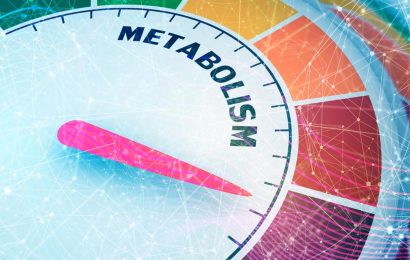A common side effect of having diabetes is feeling fatigued. Being tired all the time and having low energy can make it difficult to do everyday things, such as going to work or school, cooking dinner, or cleaning the house. Fatigue can also disrupt relationships with family and friends. Why does this happen? And most importantly, what can you do about it?
Difference between fatigue and tiredness
The word “fatigue” is a somewhat general term that many people equate with tiredness. Yet, there’s a difference between the two. In their 2018 article published in the journal Diabetes Therapy, Drs. Sanjay Kalra and Rakesh Sahay define fatigue as “physical and/or mental exhaustion that can be triggered by stress, medication, overwork, or mental and physical illness or disease.” They describe fatigue as impairing both physical and mental functioning and note that fatigue can reduce the quality of life. Think of fatigue as constantly being exhausted and having no energy.
Tiredness, on the other hand, is something that everyone experiences. When you’re tired, you might feel sleepy or downright draggy. Tiredness often occurs after staying up too late, for example, or just not getting enough sleep. Feelings of tiredness tend to go away after a good night’s sleep.
To get cutting-edge diabetes news, strategies for blood glucose management, nutrition tips, healthy recipes, and more delivered straight to your inbox, sign up for our free newsletters!
Diabetes and fatigue
If you have diabetes and are feeling fatigued, you’re not alone. Research indicates that fatigue is quite common in people with diabetes; one study showed that 61% of people newly diagnosed with type 2 diabetes experienced fatigue. Diabetes fatigue affects those with type 1 diabetes, too. In fact, some studies have shown that 85% of those who have diabetes experience fatigue.
Causes of fatigue
There are many reasons why diabetes can cause fatigue. Diabetes, itself, can directly contribute to having constant low energy, although other factors related to diabetes may be contributors, as well. Fatigue may even be the initial symptom of diabetes, or it may be present with other symptoms, such as high blood glucose. Common causes of fatigue specifically related to diabetes include:
- Hyperglycemia (high blood sugar)
- Hypoglycemia (low blood sugar)
- Diabetes complications, such as heart disease, kidney disease, liver disease, or nerve damage
- Certain medications, such as statins, diuretics, or beta blockers
- Obesity
Other fatigue-causing actors that may be linked with having diabetes include:
- Hypothyroidism (underactive thyroid)
- Addison’s disease
- Cushing’s syndrome
- Celiac disease
Fatigue can also result from the mental and emotional toll of living with diabetes. Depression, anxiety, and stress are common in people who have diabetes (or any chronic disease, for that matter). These factors, in turn can lead to sleep disorders, which can further worsen feelings of fatigue. Diabetes distress, which can occur when you feel frustrated, worried, angry, or simply burnt-out from trying to live with and manage diabetes is another cause of fatigue.
It’s important to note that fatigue can occur to reasons not related to having diabetes. For example, anemia, cancer, emphysema, fibromyalgia, arthritis, inflammatory bowel disease, COVID-19, and pain are just some conditions that can cause constant exhaustion. Even daily habits, such as lack of physical activity and unhealthy eating, can be culprits. David Spero, RN, mentions that working nights or rotating shifts can cause fatigue by “messing with your body clock” and by disrupting sleep.
Fighting off fatigue
If you feel like you’re constantly battling feelings of fatigue, let your health care provider know in order to identify possible causes and come up with an appropriate treatment plan. Be specific when describing your symptoms and let your provider know if fatigue is getting in the way of day-to-day activities, such as going grocery shopping. In the meantime, there are steps that you can take to help boost your energy.
Work on keeping your blood sugars within your target range.
Swings in your blood sugars contribute to fatigue, as do constantly high blood sugars or frequent lows. Keeping them more consistent and in a healthy range can help you feel better.
Review your medications with your provider.
They may be able to switch some of your medications if they are likely causing you to feel fatigued.
Aim to be active.
This may be the last thing you want to do when you can barely get off the couch. The key is to start small and gradually build up. Set a goal for yourself to do some kind of activity — walking to the end of your driveway or dancing to your favorite tunes. Increase the distance or length of time when you feel able.
Eat better.
There’s no need to completely overhaul your diet. As with activity, set a few, doable goals around improving your nutrition. This could be including a vegetable at lunch and dinner, trying a different way of cooking, or cleaning out your cupboards of not-so-healthy foods. If you need help with a healthier eating plan, schedule an appointment with a dietitian (your doctor can give you a referral).
Stay hydrated.
Dehydration from high blood sugars or other health conditions can contribute to fatigue. Choose water, sparkling water, or other noncaloric beverages. Limit the use of alcohol or too much caffeine.
Focus on sleeping better.
If you have pain from, say, neuropathy or arthritis, talk over different pain-reducing options with your provider. If you can, set up a sleep schedule so that you go to bed and wake up at consistent times. Ease up on television, smartphones, or laptops at least an hour before bedtime. Invest in a better-quality mattress, pull down the shades, and cool off the bedroom for some sound shut eye.
Find ways to take your mind off your fatigue.
Easier said than done, perhaps, but if you are engrossed in a hobby that you enjoy, reading a good book, taking a course, or listening to music, you are less likely to dwell on how exhausted you feel.
Connect with others.
Spend some time talking with family or friends, either in person, over video, or on the phone. If you don’t have anyone to connect with, consider joining an online support group. The American Diabetes Association’s Online Support Community is an option if you are looking for support for your diabetes, but there are other types of groups, too. Do an internet search or check out social media, such as Facebook, for groups that are of interest. If you prefer in-person options, look into groups in your community.
Seek professional help if you are feeling depressed, anxious, or stressed.
Your provider or health plan can recommend a counselor who can suggest appropriate therapy, such as cognitive behavioral therapy (CBT), an approach that is focused on dealing with challenges, thoughts, and behaviors.
Try not to resign yourself to feeling fatigued all the of the time. Work with your health care team to get at the root of the issue, and be open to trying different approaches to help restore your energy.
Want to learn more about sleeping well with diabetes? Read “Getting the Sleep You Need,” “Eating for Better Sleep” and “Sleep and Diabetes: What’s the Connection.”





